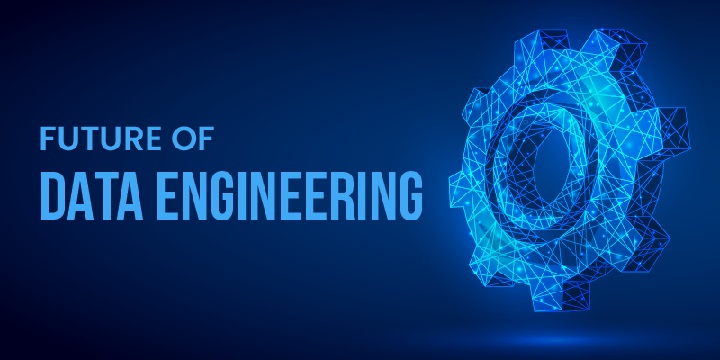Data dominates every industry today. Data-driven business choices need extracting and analyzing continuously growing data.
Real-time data management requires creative solutions because most organizational data is sensitive. Data specialists are in demand like never before. According to Forbes, data scientists, big data engineers, and machine learning engineers are in demand.
Thus, Marketsandmarkets.com predicts a 10.6% CAGR for the worldwide Big Data market from USD 138.9 billion in 2020 to USD 229.4 billion in 2025.
According to interviewquery.com, data engineering interviews have climbed 40% in the past year. In contrast, data scientist interviews have increased by 10% compared to an 80% growth.
Preparing for a data engineering certification test is an excellent method to learn and demonstrate your talents.
Understand data engineering and where the field of data engineering future stands five years later before starting the data engineering future.
Data engineering— What is it?
Data engineering is a strange combination of data science and software engineering. It covers data management from collection to analysis and decision-making.
Data engineers ensure that data is clean, easy to use, secure, and in the proper format. Data engineers also design, implement, and maintain data storage systems.
Data Engineers’ evolving roles
The data engineering future will change drastically due to rapid technological improvements. Data engineering has been influenced by IoT, serverless computing, hybrid cloud, AI, and machine learning (ML).
According to The Emergence and Future of the Data Engineer, big data’s widespread usage created the data engineer. However, the growing automation of Data Science technologies has caused the biggest revolution in data engineering in the previous eight years.
Why is data engineering exciting?
For actionable insights, you must refine data. Data engineers generate, clean, process, and store data for analysis. They also provide data management architectures to democratize data access and streamline pipelines. Data engineers help AI, ML experts, and data scientists use data to solve business problems.
Large-scale data drives data engineering requirements. Every significant corporation has nearly 10 million consumers and millions of daily transactions. Data penetration, sources, lack of a state-of-the-art system to show these, and data governance are becoming critical. Systems crashing used to be good, but now it can kill organizations overnight. Other firms await failure.
Data engineering future: The inevitable shortage
Professional data engineers are in high demand. LinkedIn lists more than 29,000 data engineering jobs for 2021, which shows that companies are still having trouble filling positions because there aren’t enough skilled people.
Data engineering is a specialized field, but data science is a broader field that needs ongoing training and is used by many people. Data engineers are in high demand, but there aren’t enough qualified people to fill the jobs. To move forward, we need to put together teams of people from different fields and give them access to education and training in data engineering.
So, let’s move on to the topic of what’s the future of data engineering.
Data engineering future
Complex data architectures require data engineering. Data engineering has room to grow in the early digital age.
Data analysis is changing corporate goals for several companies. Fast data access gives firms a competitive edge as data transforms business circumstances.
The data engineering future is cloud-based, real-time, and automated. Data engineering will survive automation, despite its relationship with employment losses. Regardless of their tools and technology, data engineers will always be required to interpret and manage new data types.
IoT devices enable businesses to access enterprise-wide data and make data-driven choices. Data insights increase speed, flexibility, and quality while cutting operational expenses.
Digital transformation means “Right Now!” Businesses require real-time data. They must respond to consumer inquiries, resolve supply chain concerns, and resolve logistics challenges. Delays cost the company millions.
The data engineering future is fascinating. Companies have traditionally analyzed and visualized data. Most companies consider better ways to transform, handle, and track data for analysis. Thus, data engineer needs are rising.
AIMResearch thinks the data engineering market will grow 36.7% between 2022 and 2027, going from USD 18.2 billion to USD 86.9 billion. Data engineering will rise from 29.8% of the analytics market in 2022 to 43.2% in 2027.
IT, internet/eCommerce, and banking/insurance drive this expansion. Data engineers earn INR 17.0 lakhs annually on average. Delhi/NCR leads the cities with a median salary of INR 19.3 lakhs per year, followed by Bangalore at INR 19.0 lakhs. According to the Opportunities Study 2022 by AIM Research, data engineers have 1.8 times more open jobs than data scientists.
Organizations today realize data engineers are crucial to data strategy success. Thus, data engineer job openings rise. AIMresearch lists 36,457 data engineer jobs.
A few prospective data engineering future technology shifts are:
- Batch to Real Time: Change data capture solutions quickly to replace batch ETL, enabling database streaming. ETL operations are now real-time.
- Better data warehouse-source connectivity
- Data engineering allows innovative tools for self-service analytics.
- Data Science Automation
- On-premise/cloud hybrid data architectures
Data engineering technology has also changed to focus on “data as it is” rather than storage. Real-time data processing has simplified data access but complicated processing.
The unicorn data engineer is rare, but the data engineering domain will be too broad for one data engineer to address. So, investing in data engineering skills is an excellent way to ensure you can get a job in the future and stand out in the tech job market.
In conclusion
The field of big data is an exciting place to work. Openings for data engineers have increased by 30% over the past five years, faster than the average for job growth. The average annual salary for a data engineer is above $110,000. It’s wise to have a concept of life as a professional.
The data engineering future will rely heavily on today’s data engineer’s efforts.
Learning the skills necessary to work as a data engineer has never been simpler. You may learn how to construct big data pipelines in under six months if you enroll in a data engineering course in Los Angeles.










